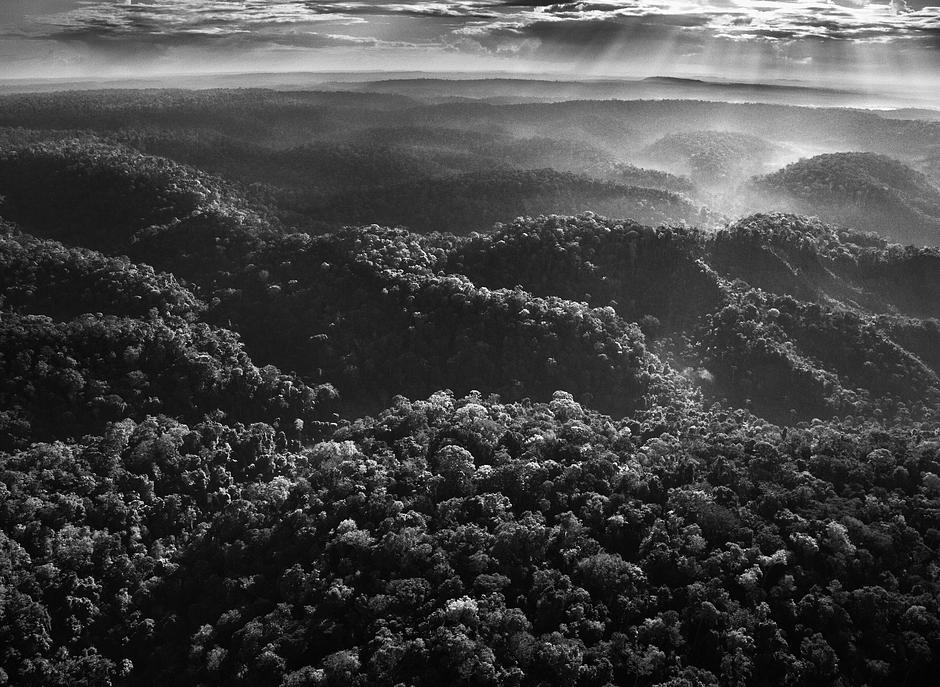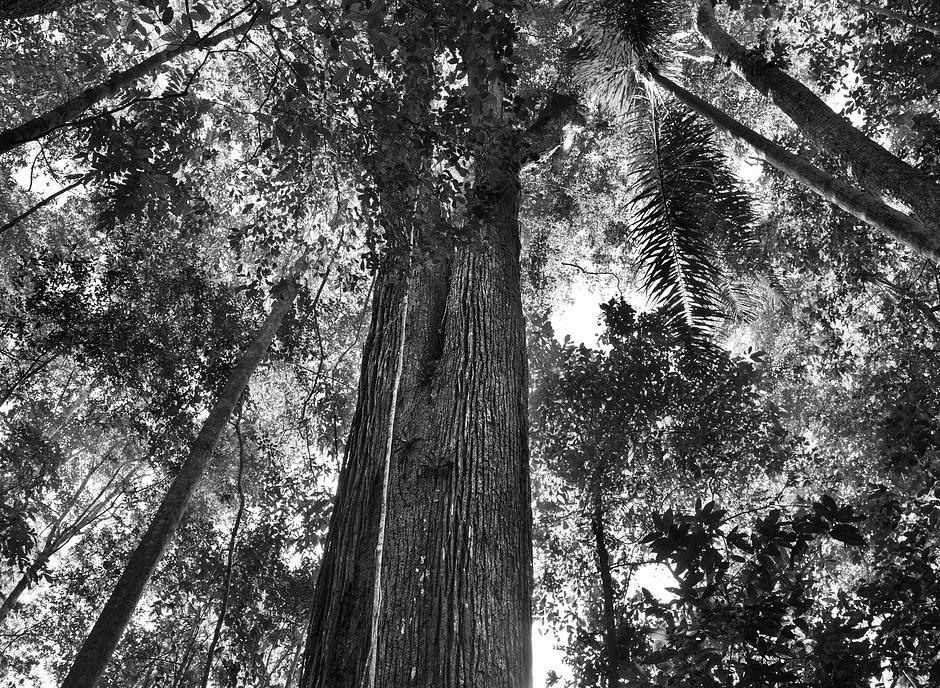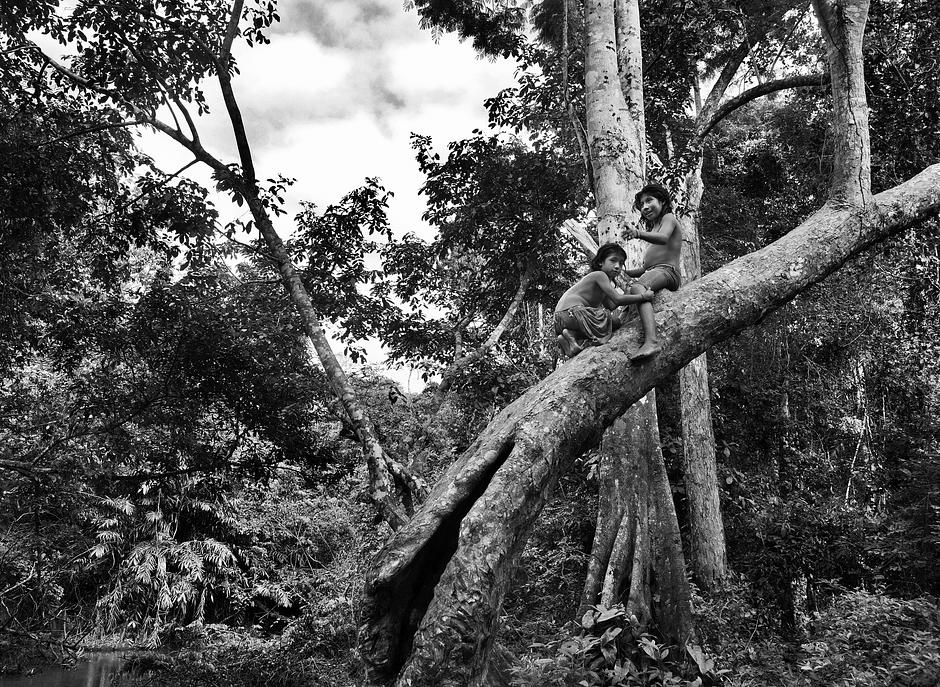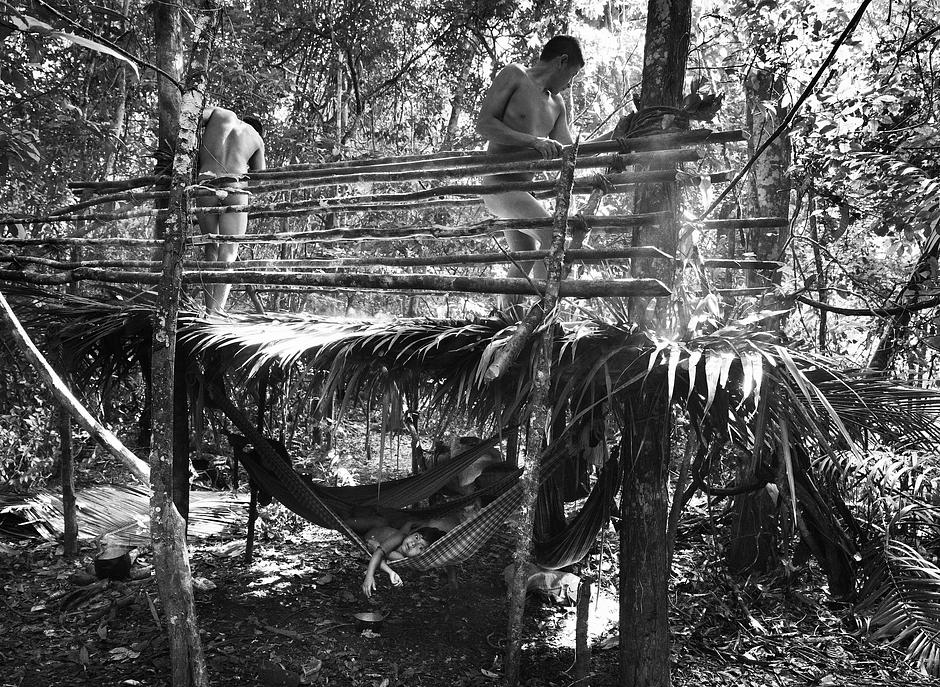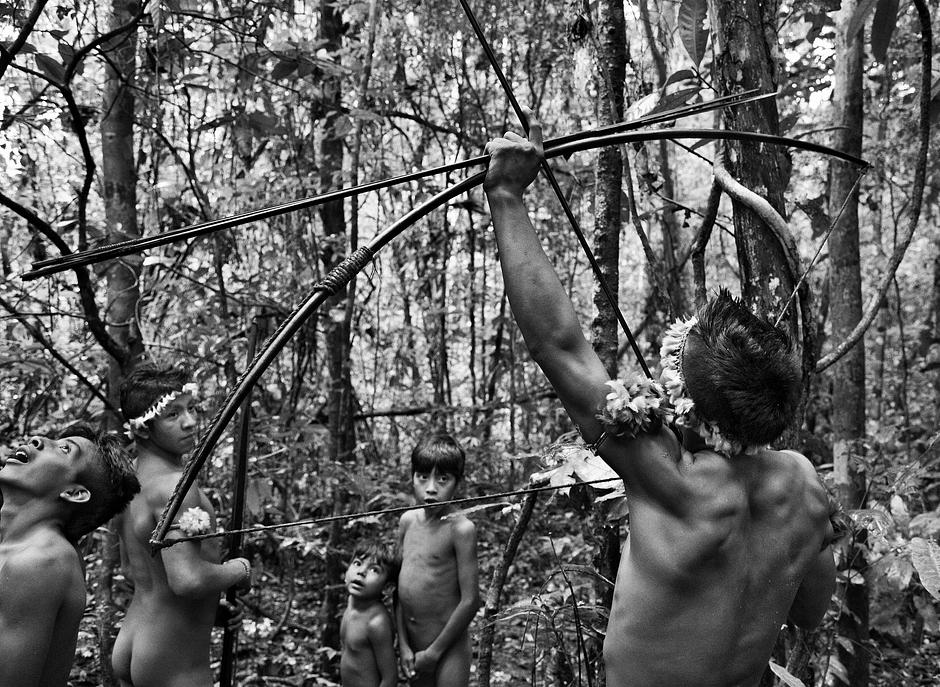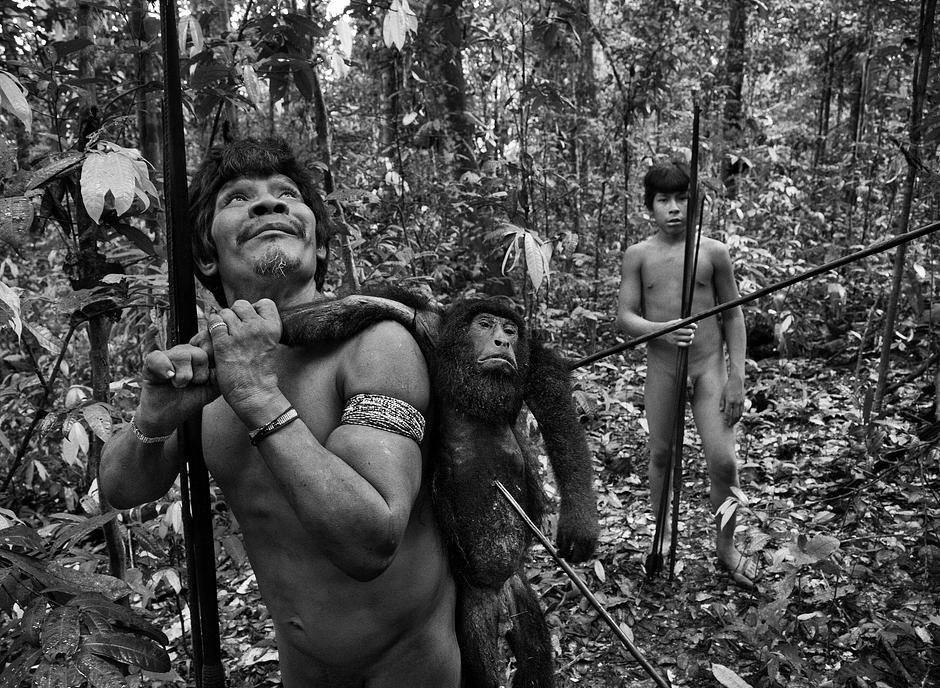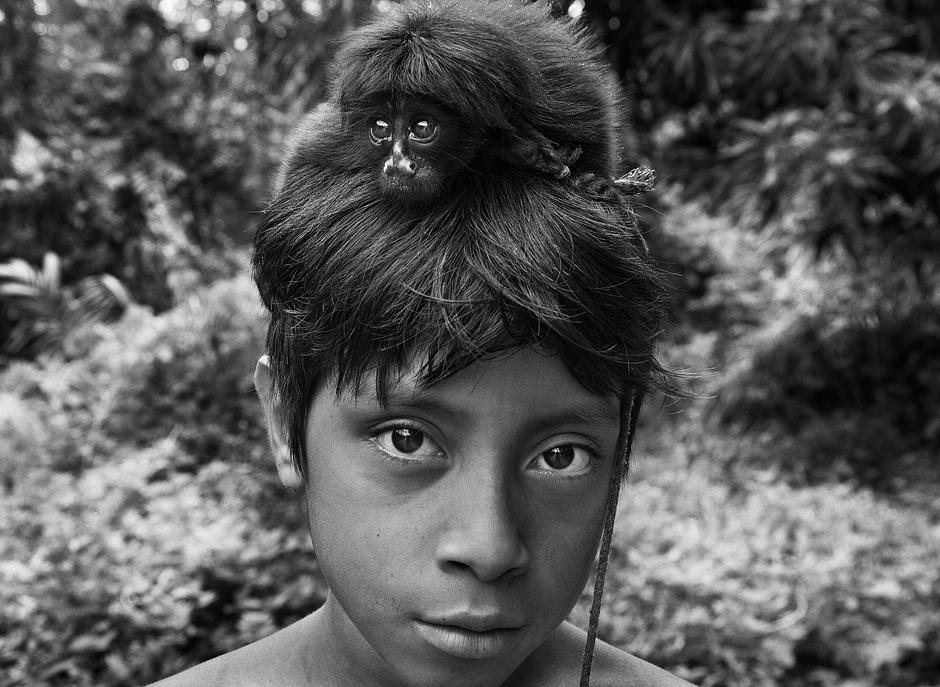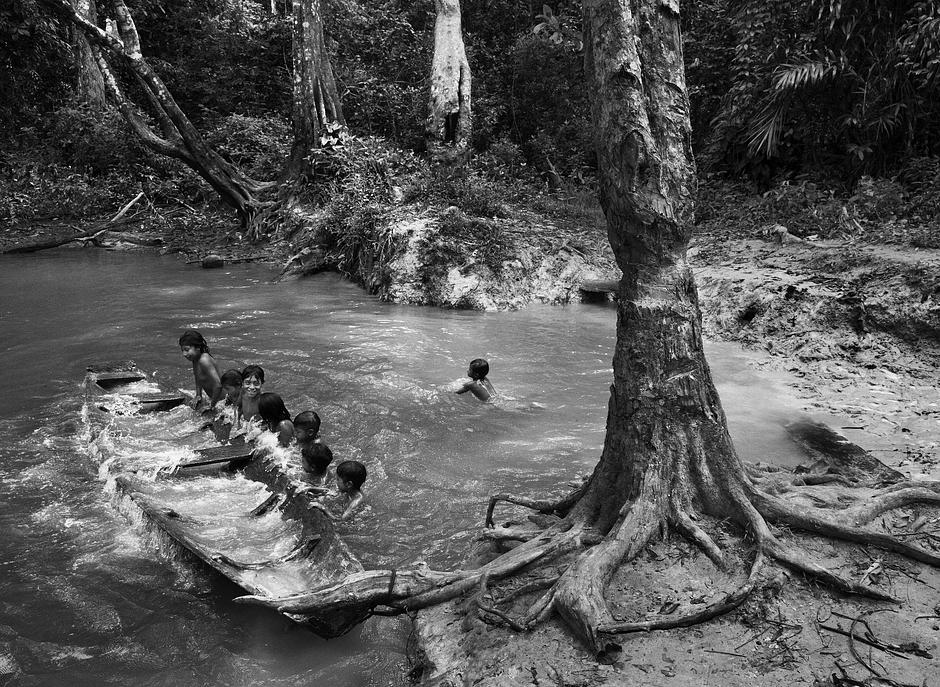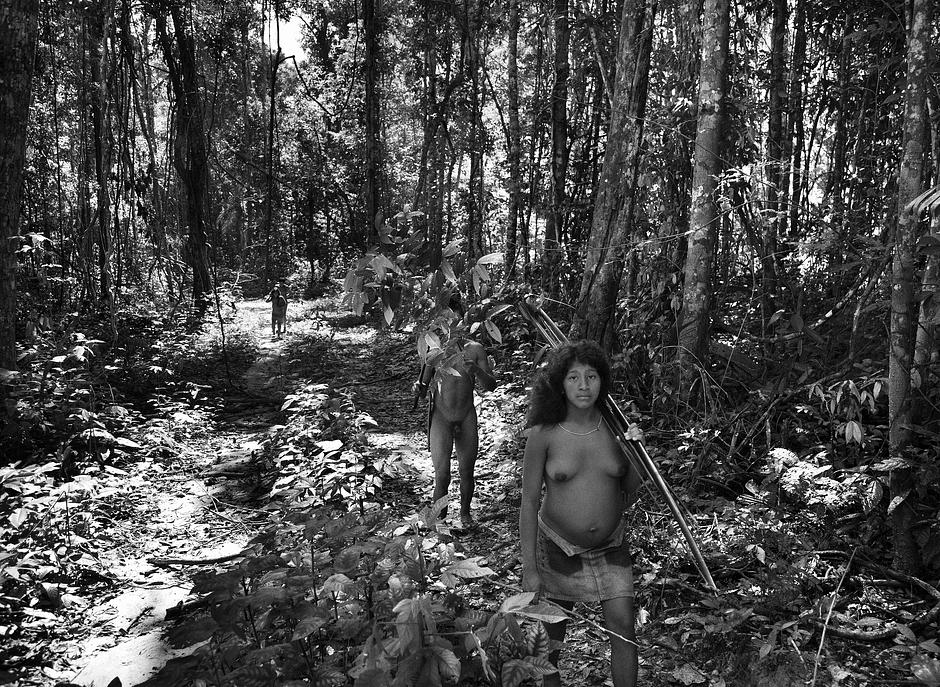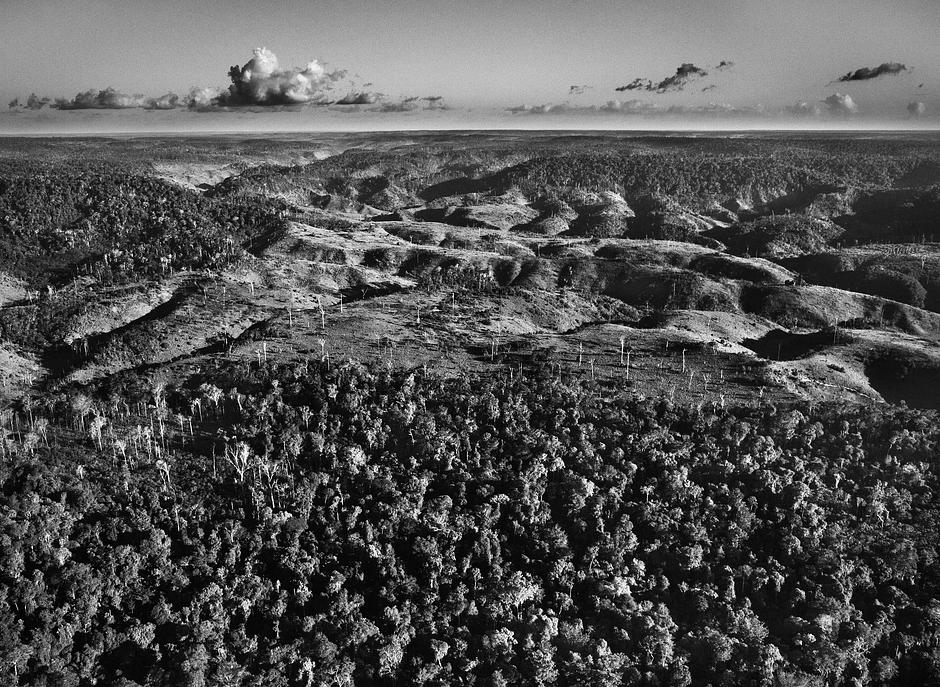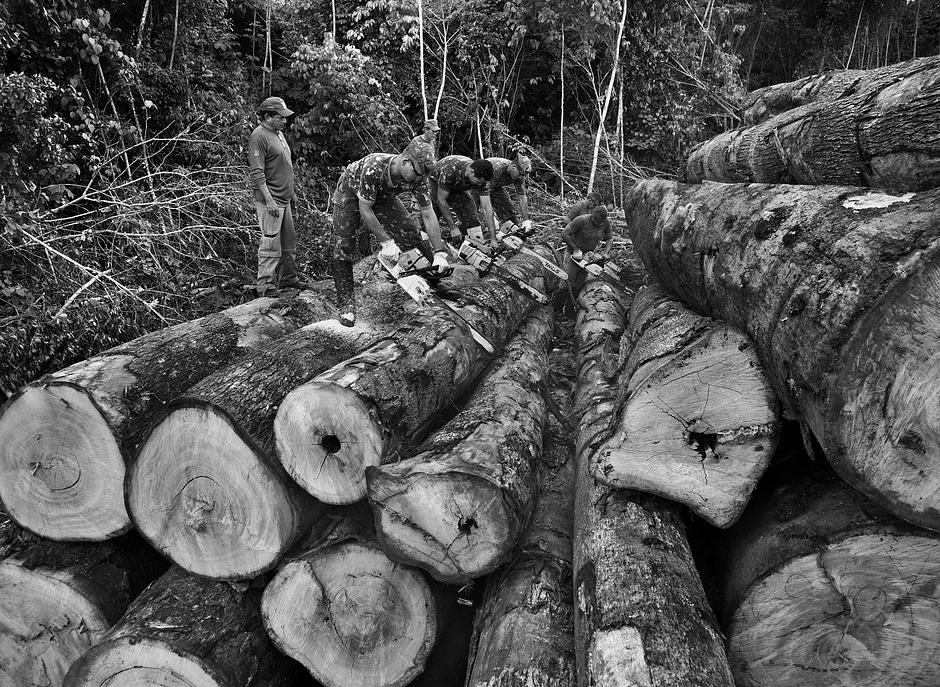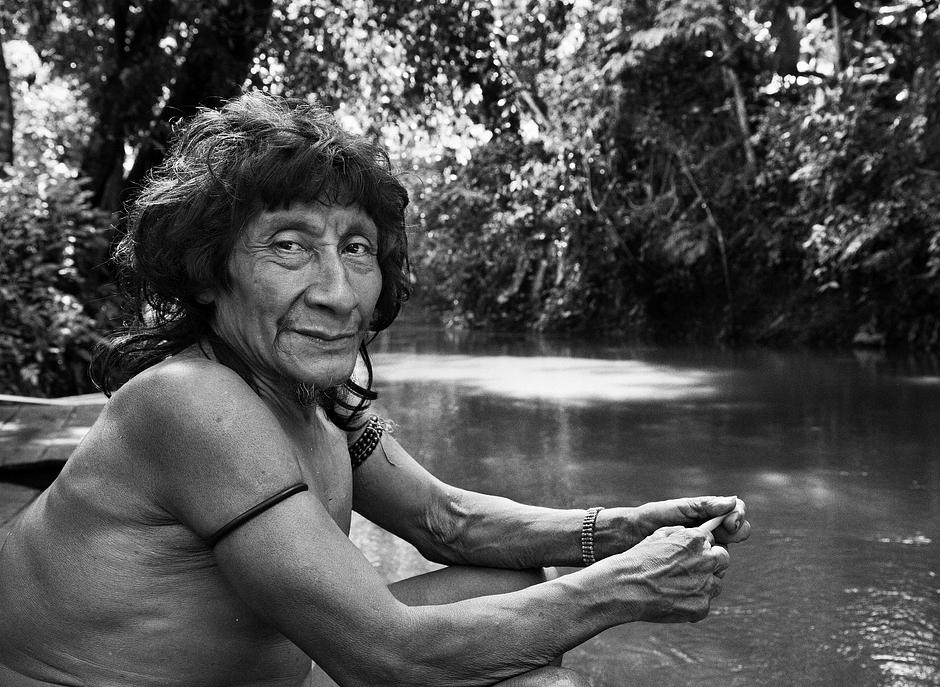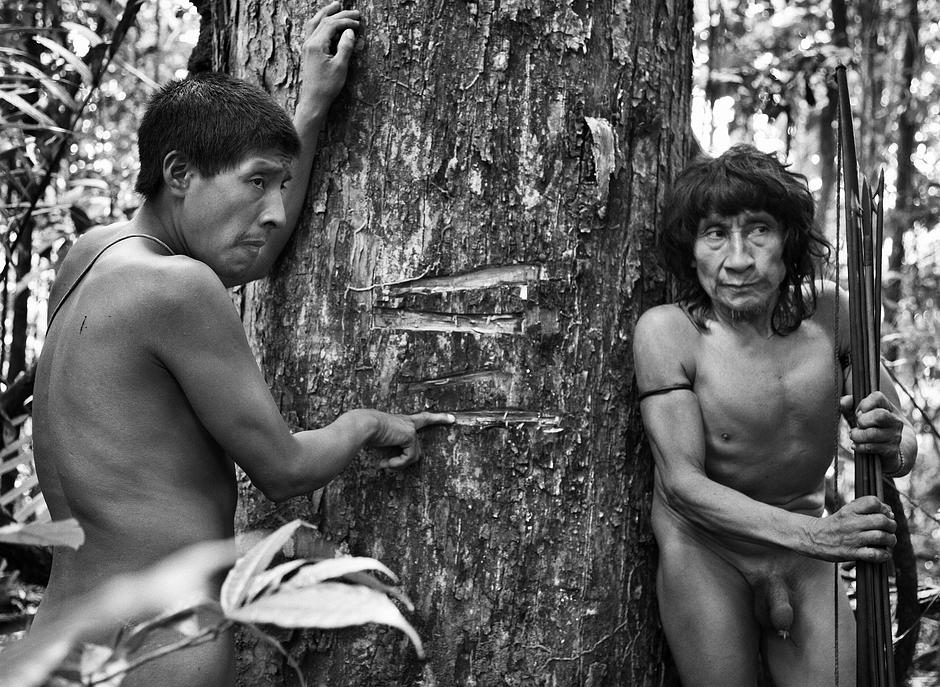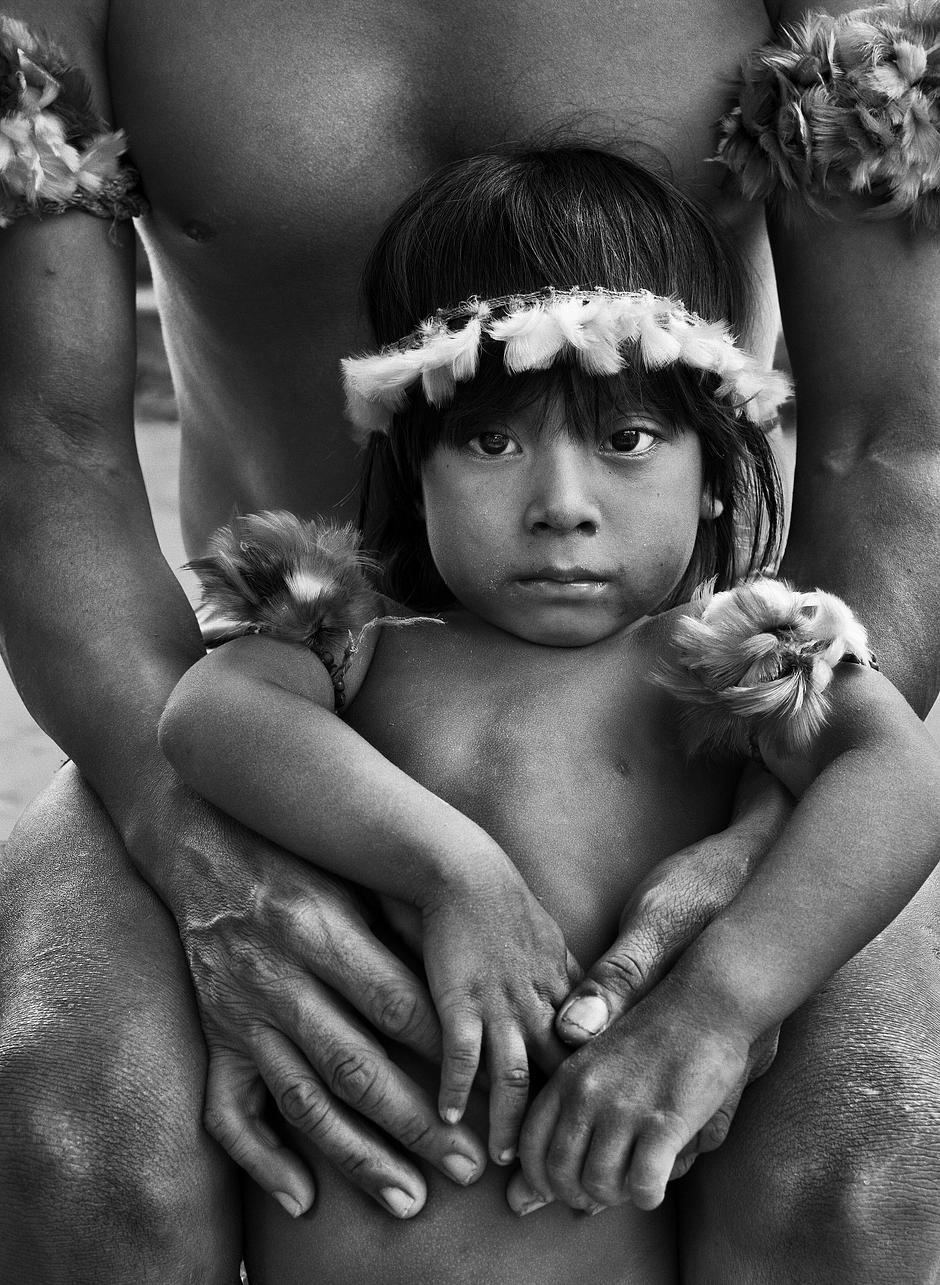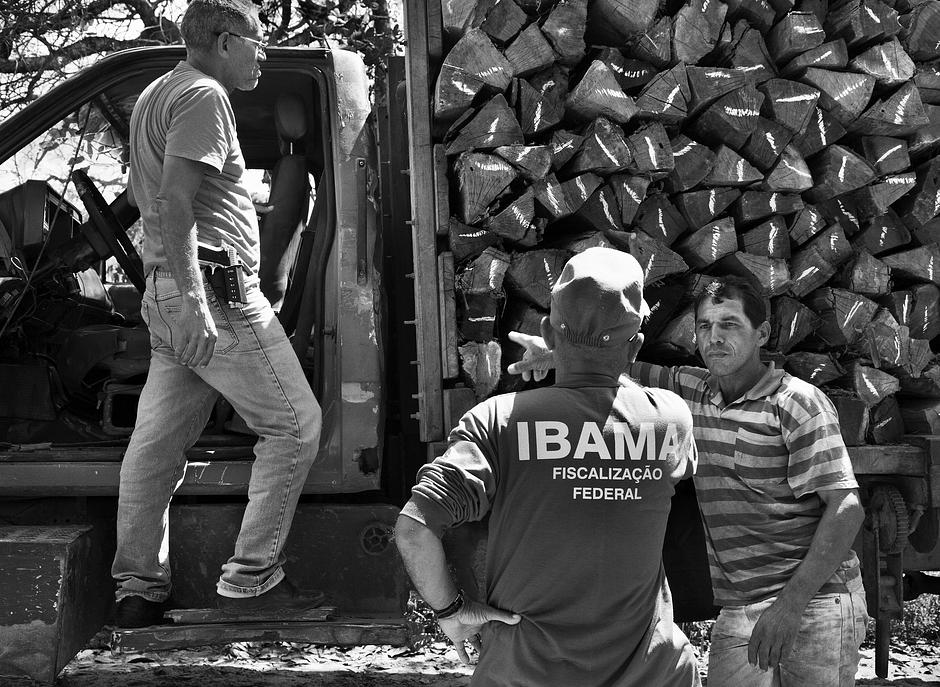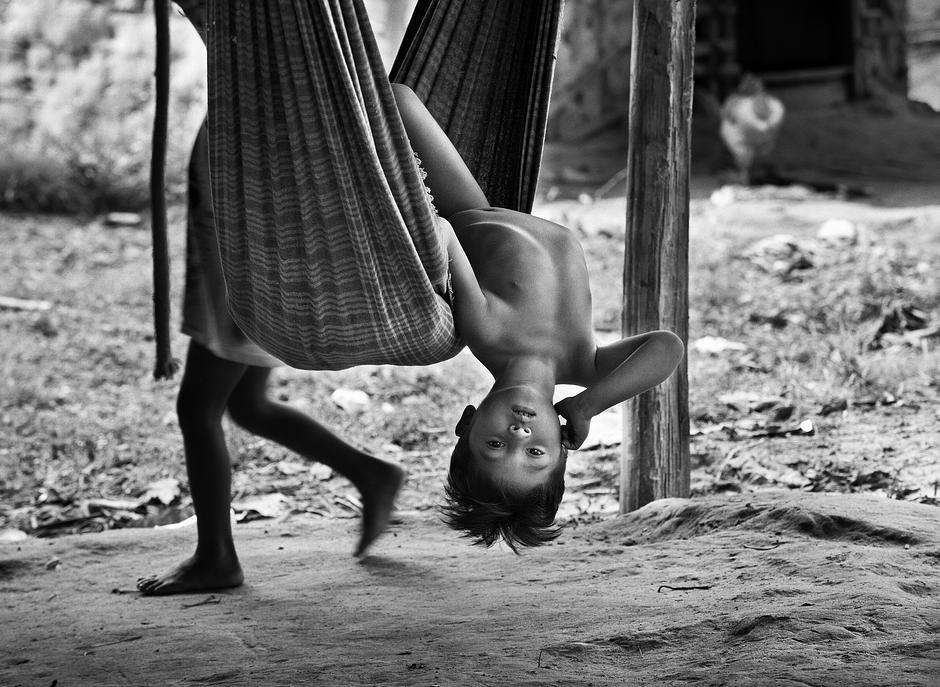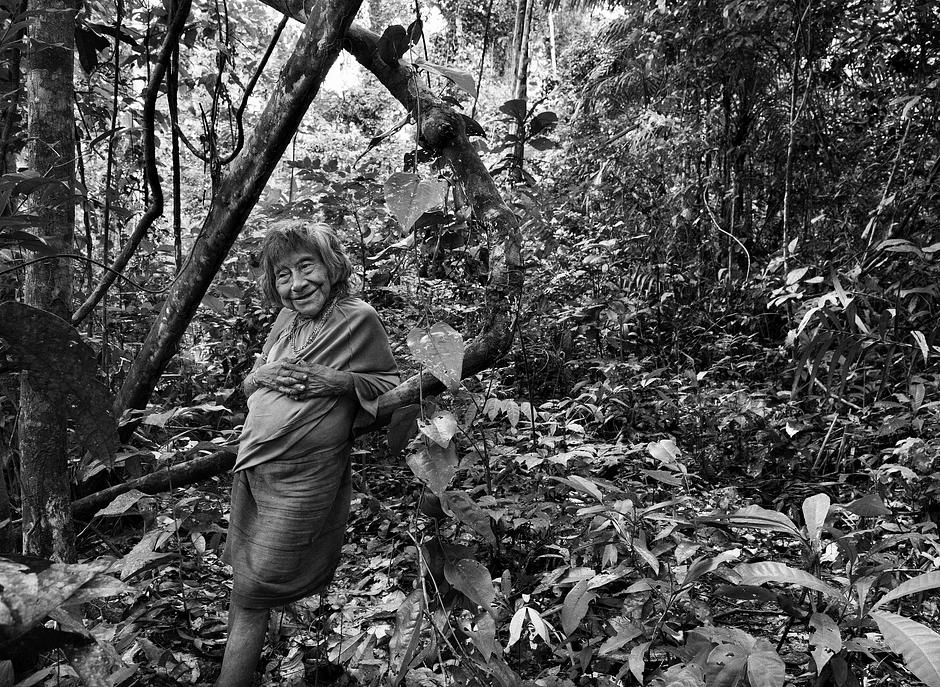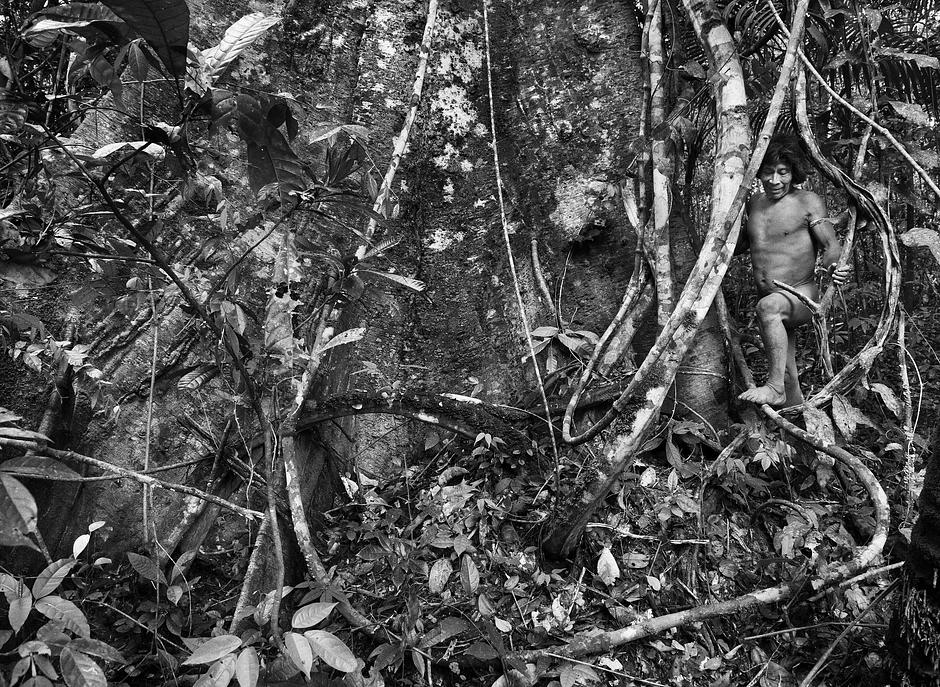The Awá: Sebastião Salgado's gallery
Survival International continues its high-profile campaign for the Awá, by collaborating with world-famous Brazilian photographer Sebastião Salgado.
Shafts of evening sunlight illuminate the dense Amazon rainforest of northeast Brazil.
A place of extraordinary beauty and biodiversity, the Amazon is home to the puma, jaguar and anaconda. And it is also the homeland of the Awá, one of the last nomadic tribes in Brazil.
Survival International has campaigned for Awá’s rights for decades.
This unique gallery is the result of a collaboration between Survival and world-renowned photographer Sebastião Salgado, who recently visited the tribe to document their world, and the threats to their lives.
© Sebastiao Salgado/Amazonas/nbpictures
For centuries, the Awá’s way of life has been one of symbiosis with the rainforest. First contact with FUNAI, the Brazilian government’s indigenous affairs department, took place in 1973.
Today, the 450 members of the Awá tribe are surrounded on all sides by ranchers, loggers and settlers who have invaded and killed with impunity.
Entire Awá families have been massacred; ancient trees have been chopped and burned.
A Brazilian federal judge described the Awá’s situation as, ‘a real genocide.’
Fortunately, in December 2013, as a result of an international campaign led by Survival International, Brazil decided to launch an unprecedented mission, termed Operation Awá, to expel all non-Indians from the Awá’s territory; the operation succeeded in April 2014.
© Sebastiao Salgado/Amazonas/nbpictures
It is thought that there are around 100 uncontacted Awá who still live in the rainforest without any interaction with outsiders.
They are some of the last uncontacted people on the planet.
© Sebastiao Salgado/Amazonas/nbpictures
The Awá make hammocks from ‘tucum’ palm fibres – the contacted Awá also use cotton – and headdresses from toucan feathers.
They are able to build a house from lianas, leaves and tree saplings in a few hours.
© Sebastiao Salgado/Amazonas/nbpictures
To the Awá, the land has one name: Harakwá, meaning, the place that we know.
They live by hunting for wild pigs, tapirs and monkeys, traveling through the rainforest with 6-foot bows, and by gathering forest produce: babaçu nuts, açaí berries, and honey.
© Sebastiao Salgado/Amazonas/nbpictures
Some foods are considered to have special properties; others, such as vultures, bats and the three-toed sloth, are forbidden.
Animals are only hunted at certain times of year, ensuring that their numbers can replenish.
If my children are hungry, I just go into the forest and I can find them food, said Peccary Awá.
© Sebastiao Salgado/Amazonas/nbpictures
The tribe nurtures orphaned animals as pets; they share their hammocks with raccoon-like coatis and share mangoes with green parakeets.
Awá women breastfeed capuchin and howler monkeys and have also been known to suckle small pigs.
Once a monkey has been brought into the family and breast-fed, it will never be eaten.
© Sebastiao Salgado/Amazonas/nbpictures
The Awá calendar is divided into ‘sun’ and ‘rain’.
Celestial beings known as maíra control the rains that fall from large lakes in the sky.
© Sebastiao Salgado/Amazonas/nbpictures
An Awá family hunting in the forest.
As nomadic hunter-gatherers, the Awá are always on the move, carrying everything they need with them: bows and arrows, children and pets.
The Awá also travel by night, lighting the way with torches made from resin that Awá women extract from the Brazilian redwood tree (maçaranduba tree).
Every valley, stream and trail is inscribed on their mental map. They cannot conceive of moving on; of leaving the place of their ancestors.
© Sebastiao Salgado/Amazonas/nbpictures
Today, Awá forests are disappearing faster than in any other indigenous area in the Brazilian Amazon.
Satellite images have revealed that over 34 percent of one Awá territory has already been destroyed, despite the land being legally recognized.
Harakwá is beginning to take on the appearance of a wasteland.
For a long time we’ve been asking for the invaders to be removed. We don’t want to see the loggers destroying our forest.
We like to see the forest standing.
If you destroy the forest, you destroy us too.
Awá man.
© Sebastiao Salgado/Amazonas/nbpictures
Loggers and farmers work day and night to chop and sell the wood and clear land for cattle pasture.
© Sebastiao Salgado/Amazonas/nbpictures
The Awá are finding it increasingly difficult to find game in the forest, and Awá have been brutally attacked by loggers whilst out hunting.
Monkeys, peccaries and tapir are all running away.
Everything is dying. We are all going to go hungry. We are not finding any game, because the white people use guns and kill all the game.
Pire’i Ma’a, Awá man.
© Sebastiao Salgado/Amazonas/nbpictures
The loggers are ruining our forest. There is not enough food, not enough fish. After we drink, we have stomach aches – they throw rubbish in the rivers.
There are roads right through the middle of the forest. The loggers mark the trees for felling.
Haikaramoka’a, Awá man.
© Sebastiao Salgado/Amazonas/nbpictures
The uncontacted Awá are particularly vulnerable, and face catastrophe unless their land is protected.
They could be wiped out by violence from loggers who steal their land and resources, and diseases like flu and measles to which they have no resistance.
© Sebastiao Salgado/Amazonas/nbpictures
The Brazilian army destroys confiscated wood from Awá lands after an operation in 2013.
At the start of 2014, Brazil finally launched a ‘major ground operation’ :http://www.survivalinternational.org/news/9544 to evict illegal invaders from the Awá’s land.
This is in spite of protests from ranchers and loggers, who have called for the Awá’s land to lose its status as an indigenous territory, with some claiming that the Awá do not even exist.
Soldiers, field workers, Environment Ministry special agents and police officers are now entering Awá land to notify and remove illegal settlers, ranchers and loggers, many of whom are heavily armed.
© Sebastiao Salgado/Amazonas/nbpictures
This development follows a high-profile campaign by Survival International, backed by celebrities such as Colin Firth, Gillian Anderson and Vivienne Westwood.
With the help of Survival’s supporters, more than 55,000 letters have so far been sent to Brazil’s Minister of Justice, urging him to evict the invaders.
This is a momentous and potentially life-saving occasion for the Awá, said Survival’s Director Stephen Corry.
© Sebastiao Salgado/Amazonas/nbpictures
For two years Survival International has fervently campaigned for the Brazilian government to remove all non-Indian invaders from the Awá’s territory and to protect the Awá and their lands.
The multi-media campaign gave rise to thousands of voices speaking out for the Awá. ‘Save the Awá’ was spelled in snow in Amsterdam and on the wall of a shopping mall in western Australia. Articles appeared in the media on both sides of the Atlantic and dozens of celebrities pledged their support, including fashion designer Vivienne Westwood and actor Colin Firth.
A host of 57, 000 messages, from 38 countries, showered down upon the new Brazilian Minister of Justice and campaigners also wrote to Congress, their MPs and their MEPs.
In an unprecedented success the campaign incited the eviction of all non-Indian invaders from the Awá’s land by the Brazilian government. Hundreds of soldiers, police and government agents flooded the Awá’s territory, locating and destroying sawmills and logging camps and expelling invaders, who had been given 40 days’ notice to leave and had been offered compensation. The operation was completed in April 2014, whereby the Awá were presented with an ‘Evictions Completion Document’.
Survival is now urging the Brazilian authorities to put in place a long-term solution to stop the invaders from returning, and to guarantee the safety of the tribe.
The Awá deserve the right to live as they choose, on their own land, without the threat of violence or encroachment from the outside world. We won’t give up until we all have a world where the Awá – and all tribal peoples – are respected and their human rights protected, said Stephen Corry.
© Sebastiao Salgado/Amazonas/nbpictures
For the time being, the Awá are jubilant.
The evictions were really important for us, the Awá,’ Tatuxa’a, an Awá man, told a Survival researcher, in a stoic understatement.
It was really important to remove the non-Indians who were destroying our forest. But they could return.
We want to raise our children in the forest, said an Awá man.
That is their inalienable right.
© Sebastiao Salgado/Amazonas/nbpictures
Other galleries
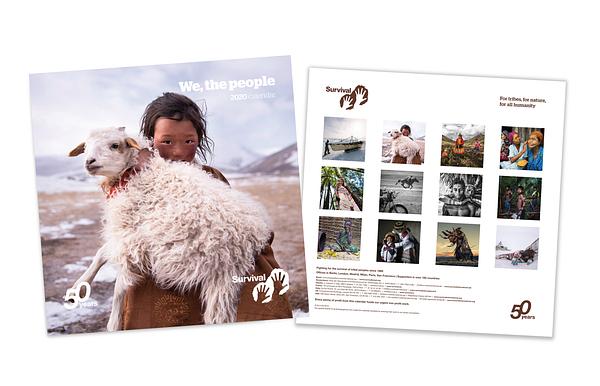
“We, the People” 2020 Calendar
Discover a new tribal portrait each month with the Survival International “We...
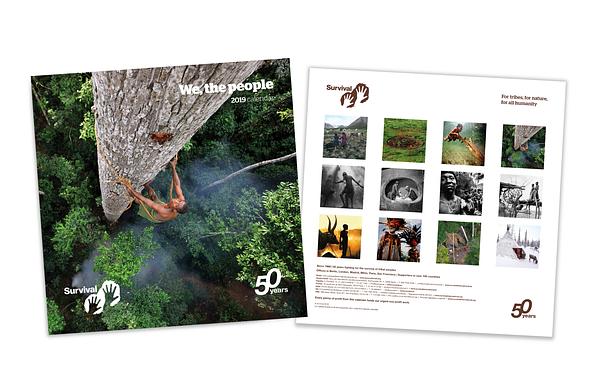
“We, the People” 2019 - The 50th anniversary Calendar
Our “We, The People” 50th Anniversary Calendar features stunning portraits of...
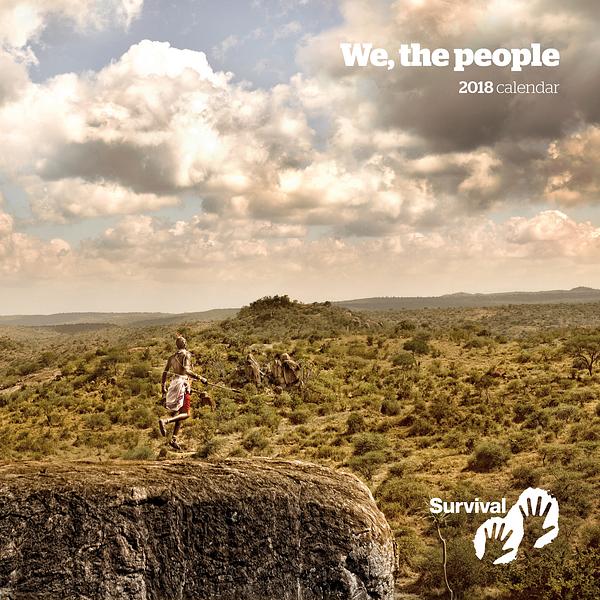
"We, the People" 2018 Calendar
Discover a new tribal portrait each month with the Survival International "We...

